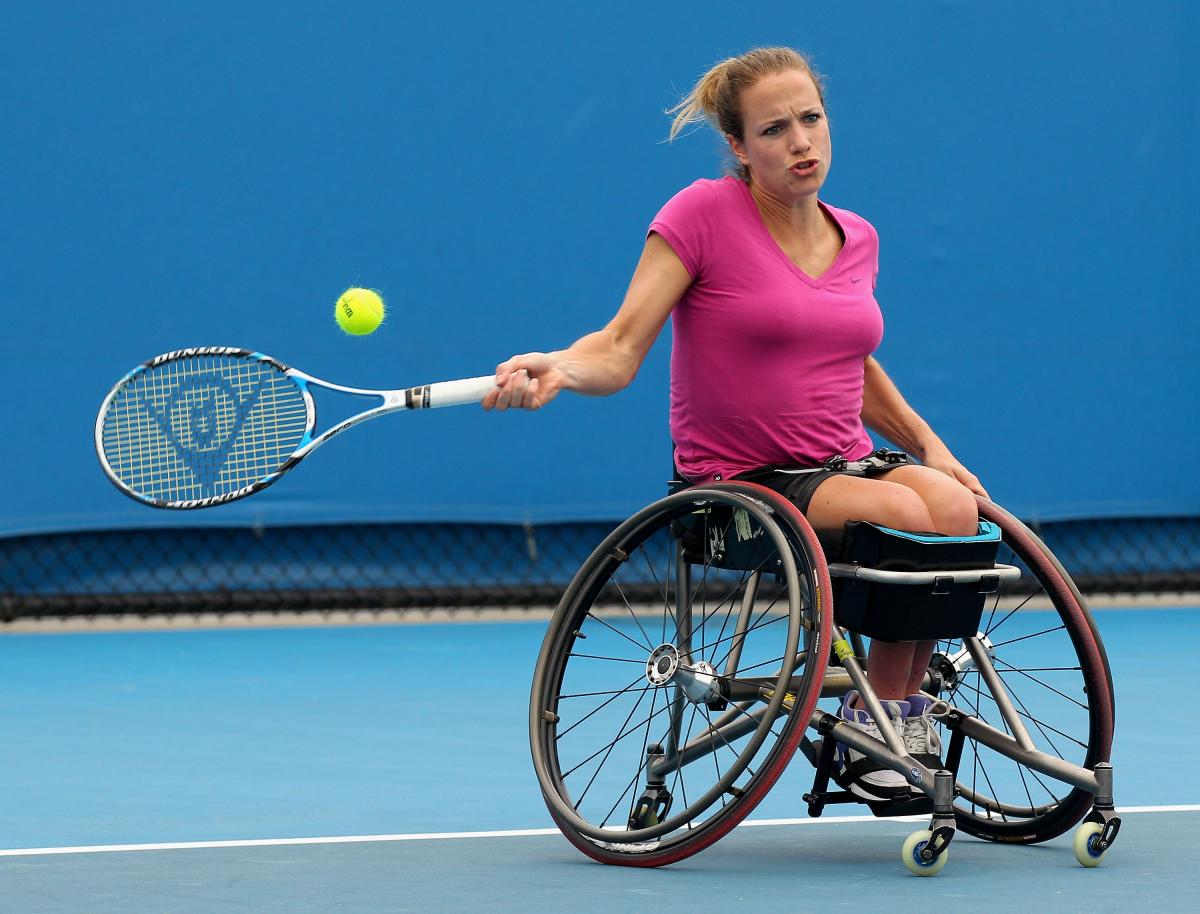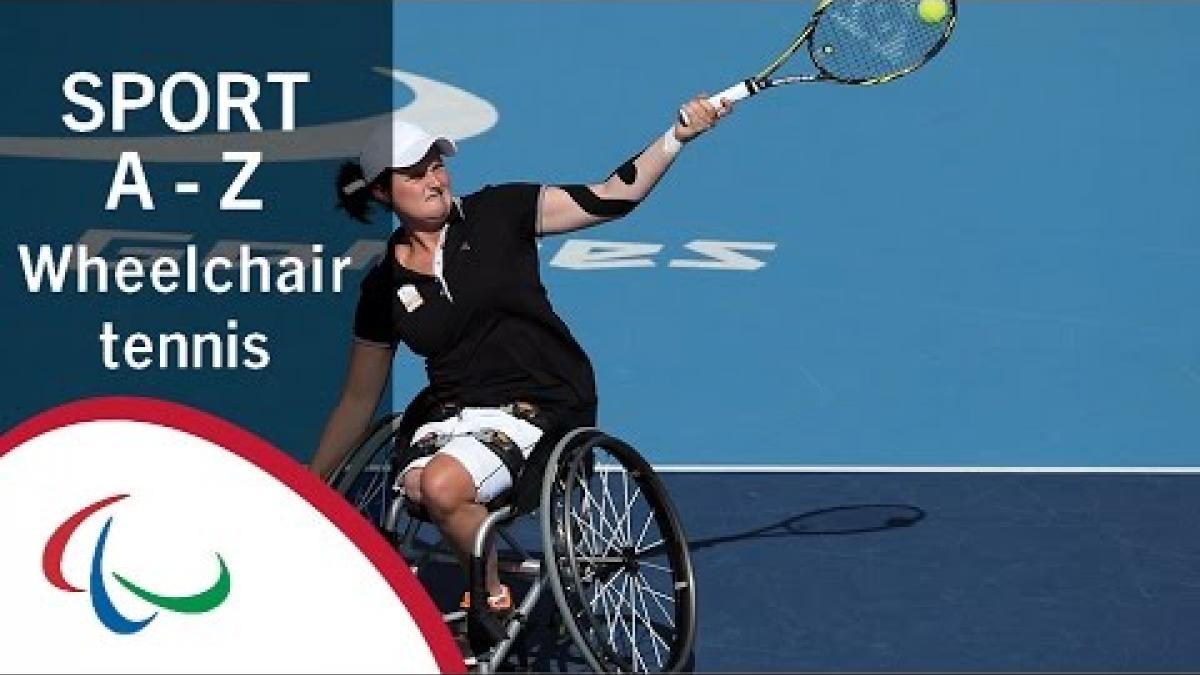Sport Week: Classification in wheelchair tennis
Athletes are assigned to two sport classes, and all have an impairment that affects their legs. 05 Apr 2016
Dutch wheelchair tennis player Jiske Griffioen at the London 2012 Paralympic Games
Editor’s note: Each sport on the Rio 2016 Paralympic programme will have a dedicated week of featured content published on paralympic.org. Every week a new sport will be featured and the series will run until September’s Games, helping the public understand more about the 22 sports being contested in Rio.
Wheelchair tennis consists of two sport classes: open and quad. All players have an impairment that affects their legs.
Open Class
This sport class is designated for athletes, who have a significant and permanent impairment of one or both legs and normal arm function. This profile may match with athletes with paraplegia or leg amputations, for example.
Quad Class
Players in this class have an impairment affecting their playing arm as well as their legs. This limits their ability to handle the racket and to move in the wheelchair. You will find that players may use tape to securely grip the racket.
Athletes with these impairments are eligible to compete in wheelchair tennis:
•Impaired muscle power
•Athetosis
•Impaired passive range of movement
•Hypertonia
•Limb deficiency
•Ataxia
•Leg length difference
Helpful links
___
Sport fans from around the world can now buy their Paralympic tickets for Rio 2016 from authorised ticket resellers (ATRs).
The IPC’s Global ATR is Jet Set Sports, and Rio 2016 tickets and packages can be purchased on the CoSport website.

 Facebook
Facebook
 Instagram
Instagram
 Twitter
Twitter
 Youtube
Youtube
 TikTok
TikTok
 Newsletter Subscribe
Newsletter Subscribe

